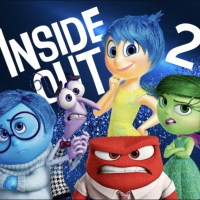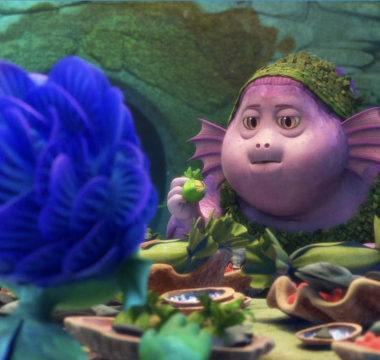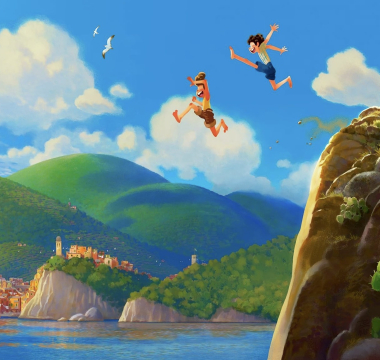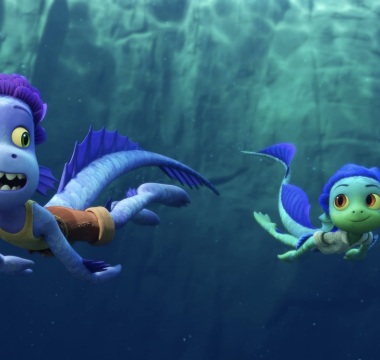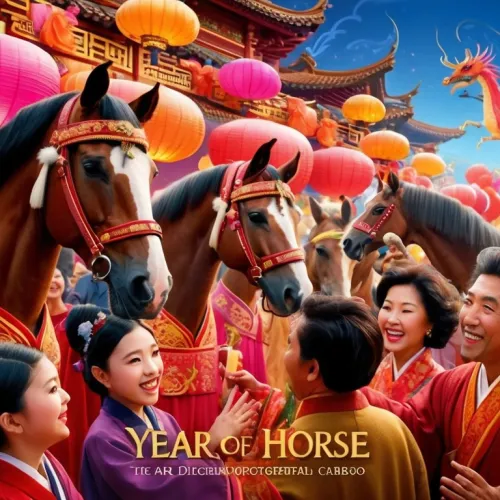When it comes to animated tales that capture the imagination, Pixar has long been a beacon of innovative storytelling. Their latest venture, "Luca," takes us on a sun-drenched journey through the heart of Italy, entwining the magical with the mundane. As an avid fan of animation, I was particularly eager to dive into this vibrant world and uncover its secrets.
Set against the backdrop of an idyllic seaside village, "Luca" draws inspiration from a rich tapestry of Italian culture and folklore. At its core, however, it is a coming-of-age tale focusing on friendship, identity, and the tantalizing allure of adventure beyond the horizon. I was curious to see how these themes would unfold and resonate with audiences across the globe.
Historical Context and Pixar's Approach
Pixar has a storied history of creating compelling narratives that transcend age and cultural boundaries. "Luca" is directed by Enrico Casarosa, who brings his authentic Italian perspective to the forefront. This infusion of personal history adds a layer of richness and authenticity to the film's setting and characters.
Unlike some of Pixar’s earlier works that often relied heavily on high-stakes drama, "Luca" opts for a more laid-back narrative reminiscent of lazy summer days. This approach might seem simple at first glance, but there is a deeper rhythm to the story—a reflection on innocence and the joys of youth that upheld my attention.
The Alluring Italian Setting
The visual portrayal of Italy in "Luca" is nothing short of breathtaking. The film's animation style leans towards the painterly, with lush landscapes, dazzling blue seas, and charming cobblestone streets. Each frame feels like a love letter to the Italian countryside. I found myself wanting to step into this animated world and explore every nook and cranny.
In the little town of Portorosso, we find a community that serves as both a vibrant backdrop and an integral part of the narrative. The detailed attention to architecture and local customs adds a compelling layer of depth, gracefully drawing me into the serene allure of this fictional Mediterranean haven.
Unraveling the Characters
At the heart of "Luca" are two young sea creatures, Luca and Alberto, who long for adventure beyond the waves. These characters are beautifully crafted, each with unique traits and personalities. Luca is the dreamer, filled with curiosity, while Alberto is the charming daredevil, ever-ready to take risks.
The chemistry between the two is palpable, reminding me of those carefree friendships of childhood. Their bond becomes the anchor of the film, driving the narrative forward and delivering a heartfelt exploration of camaraderie and trust. Together, they made me reminisce about my own youthful escapades.
The Magical Realism of Transformation
One of "Luca's" most intriguing aspects is the way it handles the concept of transformation. When out of the water, Luca and Alberto take on human forms, a process that is both seamless and magical. This metamorphosis introduces a dynamic layer to their exploration of the human world.
It's fascinating to observe how the film balances these two identities—sea creature and human—highlighting the struggle and joy inherent in such a dual existence. The transformations add an intricate layer to the narrative, echoing the universal theme of discovering one's true self.
Navigating Identity and Belonging
Identity is a prevalent theme in "Luca," touched upon with subtlety and care. The story explores Luca’s attempts to navigate two worlds, neither wanting to fully abandon his origins nor suppress his desire for a human life. It’s a delicate balance that resonated deeply with me.
Throughout the film, Luca's journey is marked by moments of self-discovery and personal growth. His experiences mirror those familiar teenage challenges of trying to fit in while staying true to oneself—stories that many of us can relate to on a personal level.
Exploring the Theme of Friendship
Friendship is at the heart of "Luca," brilliantly showcased through the bond between Luca, Alberto, and later, Giulia. Through their adventures, the film delves into the complexities of companionship—its joys and its misunderstandings.
The dynamic trio's interactions create moments of humor and heartfelt lessons. As their relationships evolve, they teach one another about courage, acceptance, and shared dreams. Watching their journey unfold, I was reminded of my own friendships and the invaluable life lessons they've taught me.
Giulia's Role in the Narrative
Giulia, the spirited local girl, adds a refreshing dynamic to the film. Her zest for life and pursuit of the Portorosso cup try to thrust her into the narrative spotlight. However, her journey remains somewhat sidelined to the overarching story of Luca and Alberto.
Despite this, her presence remains impactful. She challenges both Luca and Alberto to expand their horizons and face their fears.
Cultural References and Humor
"Luca" is rich with cultural references, from the Italian language peppered throughout to the culinary delights that frequently make an appearance. These touches lend authenticity to the narrative and introduce international audiences to the captivating warmth of Italian culture.
In terms of humor, "Luca" excels in delivering light-hearted moments with impeccable timing. The gags are clever yet wholesome, rarely relying on slapstick. Scenes where Luca's sea monster parents attempt to locate him in the town particularly had me chuckling, proof of the film's subtle comedic genius.
Animation and Visuals
The animation in "Luca" deserves applause. The visuals are lush and vibrant, with a unique aesthetic that sets it apart from Pixar's past works. Each scene is meticulously crafted, capturing the charm and beauty of a summer in Italy.
I was particularly impressed by the attention to detail—the way sunlight dances on the ocean surface, the intricate designs of the village houses, and the seamless transition between land and sea. The artistry brought a sense of warmth, almost tactile in its richness.
Soundtrack and Musical Atmosphere
A good soundtrack enriches a film, and "Luca" certainly doesn't disappoint. Dan Romer's score perfectly complements the film’s gentle yet adventurous theme. The music flows effortlessly, echoing the quaint yet energetic setting.
The occasional Italian songs weave seamlessly into the narrative, evoking a sense of nostalgia and cultural immersion. This musical backdrop enhances the emotional journey of the characters, creating an atmospheric layer that lingers long after the credits roll.
Lessons and Moral Undertones
At its heart, "Luca" is about acceptance—of others and oneself. The film imparts the lesson that our differences make us unique, encouraging viewers to embrace their identities rather than fear them.
Through Luca's journey, I was reminded of the importance of pushing beyond comfort zones to discover what's truly important in life. These moral undertones are woven subtly into the narrative, making them all the more powerful and resonant.
Critiques and Missed Opportunities
While "Luca" is undoubtedly a charming film, it does have its shortcomings. The film treads familiar ground, borrowing tropes from past coming-of-age tales without offering a significantly fresh perspective. I found myself yearning for more unpredictability in its narrative arcs.
Additionally, Giulia's character, though delightful, is somewhat underutilized. Her story could have been given more depth, adding another layer to the narrative that would have complemented Luca and Alberto's journey beautifully.
Audience Reception and Impact
The audience reception to "Luca" has been mostly positive. Many appreciate its lighter tone compared to Pixar's more emotionally heavyweight offerings. It's a film that appeals to both children and adults, perfect for family viewing.
Its impact lies in its ability to generate discussions about self-discovery, friendship, and cultural diversity. I've found myself revisiting these themes long after watching, considering how they relate to my life, and appreciating the gentle way "Luca" has broached these subjects.
Comparisons with Other Pixar Films
When comparing "Luca" to Pixar's other works, it stands out for its simplicity and leisurely pace. While it lacks the emotional depth of "Inside Out" or the epic scope of "Coco," its charm lies in its quiet elegance and sincerity.
It's a testament to Pixar's versatility—proving they can craft nuanced tales that don't always adhere to their traditional narrative structures yet still capture the essence of childhood wonder and curiosity.
Conclusion: The Legacy of "Luca"
In conclusion, "Luca" is a delightful addition to Pixar's repertoire. It may not reach the heights of the studio's legendary classics, but its meaningful exploration of friendship and identity is sure to leave a lasting impression on its audiences.
The film’s bright animation, coupled with its charming narrative, makes "Luca" a heartwarming summertime escape. It's a movie that encourages viewers to cherish life’s simple pleasures, something I believe is a worthwhile reminder for us all.




